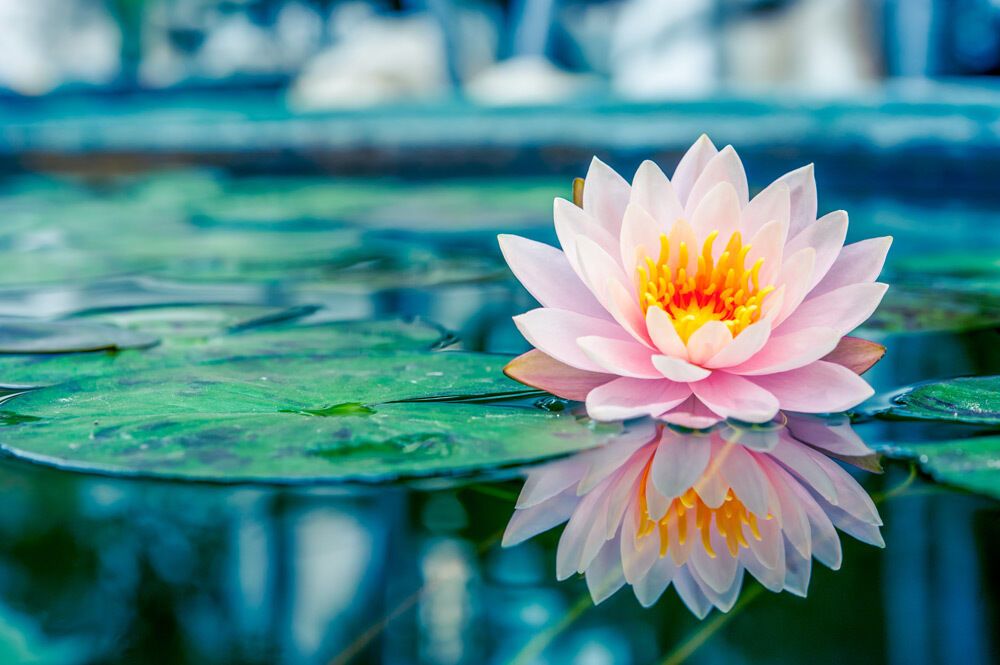11 Spiritual Meanings of Lotus Flower

The beauty of the lotus flower is indisputable, and its unique life cycle infuses it with profound spiritual significance around the world. This flower holds importance in several major religions. Additionally, it resonates with spiritually inclined individuals who may not follow organized faiths. This article explores the various spiritual meanings associated with the lotus flower. This is prepared by SSP.
- A Sacred Flower in Buddhism
The lotus flower is revered in Buddhism, recognized as one of the eight auspicious symbols. In Buddhist tradition, the flower plays a significant role in the story of the Buddha’s birth. His mother dreamt of a white elephant bearing a lotus, marking its importance.
The lotus symbolizes the quest for enlightenment, rising through mud to reach the light. Various colors of lotus carry distinct meanings: white represents purity, red embodies love, blue signifies logic and wisdom, pink recounts the Buddha's journey, and gold symbolizes the enlightenment achieved through Nirvana.
- An Important Symbol in Hinduism
Before the birth of the Buddha, the lotus already held deep spiritual meaning in Hinduism. Similar to Buddhism, the white lotus reflects purity. Furthermore, many deities are depicted seated on lotus pedestals, highlighting its divine connection.
The lotus’s life cycle, which includes growth, decay, and eventual germination, serves as an allegory for life, death, and rebirth. This cycle mirrors the ongoing journey of existence within Hindu beliefs.

- Associated with Thomas the Apostle
While primarily linked to Buddhism and Hinduism, the lotus also appears in Christianity, particularly concerning Thomas the Apostle. Legends state that Thomas ventured to India to share the Christian message, becoming a patron of the country.
Due to its association with India, the lotus embodies Thomas’s arrival and the introduction of Christianity within the sphere of Hinduism and Buddhism.
- Ismaili Muslim Beliefs
The lotus flower is also significant in the beliefs of Ismaili Muslims and various South Asian Islamic practices. Its symbolism aligns with that in Buddhism and Hinduism. As it emerges from muddy waters, the lotus reflects a pure soul.
The lotus thrives in clear rainwater, representing Muslims striving to cultivate growth through authentic learning and understanding.
- Purity
For those who adopt spiritual practices without adhering to any particular religion, the lotus symbolizes purity and respect. The flower’s journey through mud, before unfurling into a pristine bloom, highlights spiritual brilliance.
People view the lotus as a striking emblem of spiritual purity. Meditation spaces adorned with lotus imagery help cleanse negative energies, promoting growth similar to the flourishing lotus flower.
- Rebirth
The lotus also epitomizes rebirth, relevant even outside Hindu and Buddhist views. Many aspects of nature demonstrate cycles reflective of our journey. Recognizing that every ending signals a new beginning fosters acceptance of change.
Growth involves aging, but also creating opportunities for new life. The lotus enables us to embrace this cyclical truth, reminding us that rebirth accompanies each life transition.

- Determination
Life can pose significant challenges. The lotus flower embodies resilience and determination as it emerges from murky depths into the light. This plant symbolizes hard work, demonstrating the reward of persistence.
When faced with self-doubt or adversity, remember the lotus as inspiration. It urges individuals to reaffirm their efforts, recognizing that great outcomes stem from dedication.
- Spiritual Enlightenment
On a path toward spiritual growth, the lotus may serve as a focal point. Throughout various traditions, the flower advocates for seeking light in the journey towards higher truths.
Amidst modern distractions, maintaining attention on one’s spiritual needs is crucial for a balanced life. Surrounding oneself with lotus imagery serves as a reminder to uphold spiritual significance alongside worldly pursuits.
- The Divine
The lotus flower symbolizes a connection to the divine across various beliefs. It reminds us of our interconnectedness with a greater purpose. Engaging in practices like meditation fosters closeness to higher powers.
Through unwavering aspirations for growth, the lotus inspires us to understand and nurture our spiritual journeys continuously.
- Healing Powers
The lotus is viewed as a spiritual plant that possesses healing properties, especially noted in traditional Chinese and Ayurvedic medicine. Various parts of the lotus serve diverse therapeutic purposes.
Lotus leaves treat blood ailments like nosebleeds. The flowers can lower blood sugar levels and alleviate fevers or diarrhea. Rhizomes hold diuretic and anti-inflammatory attributes, while lotus seeds are cherished for heart and kidney health.

- Longevity
Another notable trait of the lotus is its dormant seeds that can remain inactive for extended periods before sprouting. This quality associates the lotus with longevity in Chinese symbolism.
Positioning lotus plants or symbols within the home can enhance energies that promote vitality. Presenting a lotus flower as a gift also conveys wishes for a long and fulfilling life.
Earlier, SSP named 16 spiritual meanings of a snake in dream.



















